What is an FTK?
The term "FTK" stands for "First Turn Kill". Anything which wins the game on the first turn counts as an FTK. Many players also consider things which lock your opponent out of the game on the first turn to be an FTK. Whether it be Frogs burning players to death with Substitoad and Mass Driver, or Synchro Fusionist decks looping Trishula, Dragon of the Ice Barrier and PSY-Framelord Omega.
The precise deck which inspired me to write this article isn't legal in any format any more, but had a 100% win rate. Here's the deck. It's an OCG Igknight build with a tonne of card draw and Igknight monsters. The deck itself isn't what this article is about, however. If you're interested in how that deck performed, check the bibliography below.
What I'm discussing today is instead the concept of FTK decks. Why they're good, why they're bad, and why we don't actually see them as outstanding performers in many metagames.
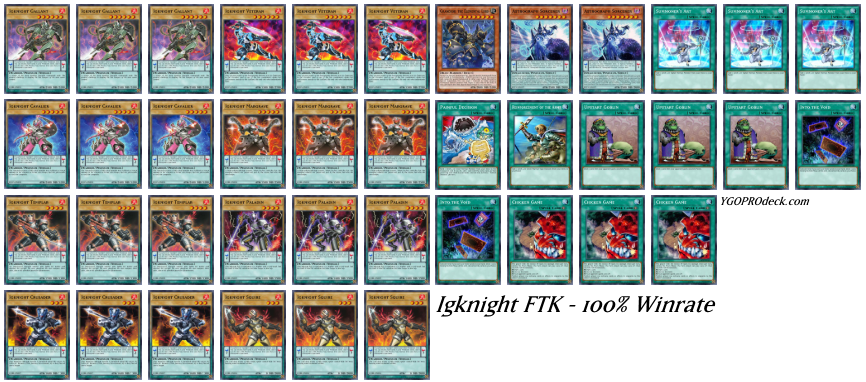
Why are FTK decks good?
For what reason should you choose to play an FTK deck at a competitive tournament? Here, I'm just discussing the purely competitive aspect of FTKs.
Tournament Fatigue
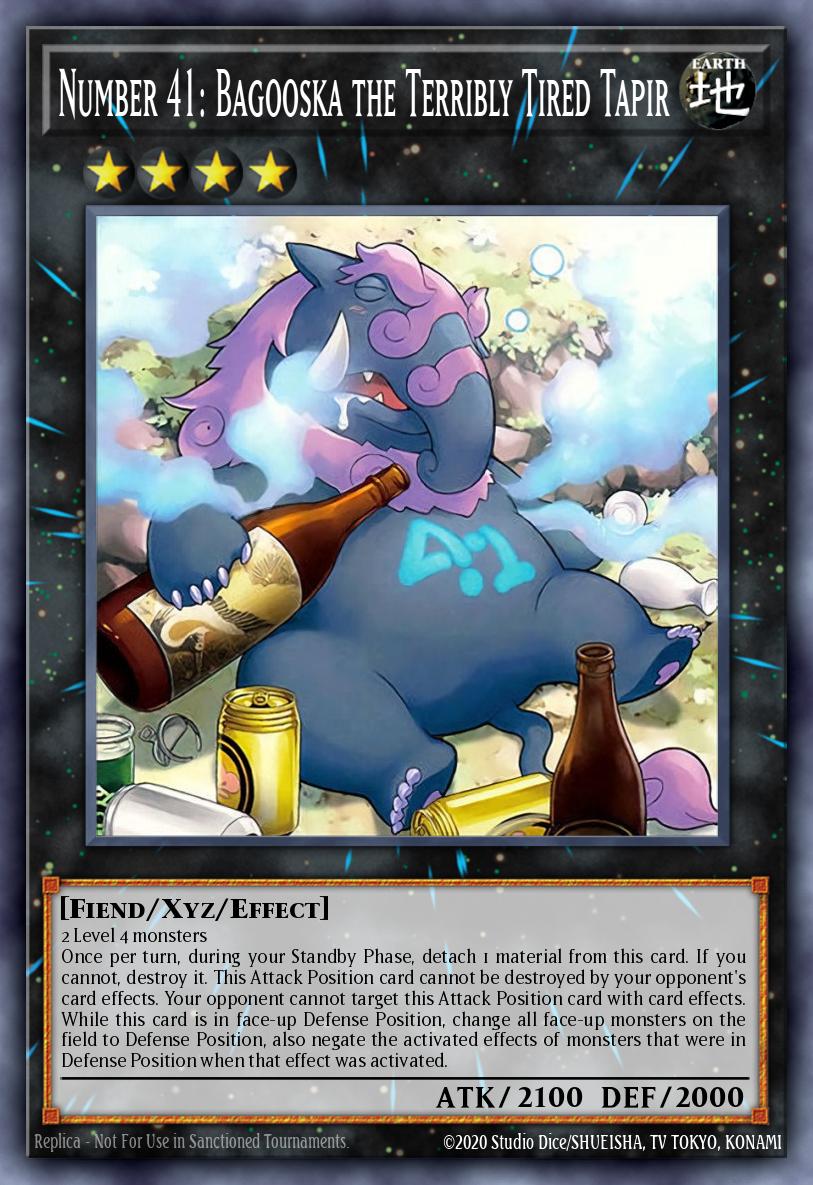
You probably already know that guy at your locals who always plays some dumb handloop. At a locals tournament, it's just a way to play solitaire for a few hours with friends. Even if they won't be your friends for much longer. At a 12-round massive grindy tournament after you've had very little sleep, it's a different story. You're possibly someone who expresses tournament fatigue - We all do, and it's a huge issue for many players. "Tournament Fatigue" is the result of all of your mental energy being focused entirely on winning children's card games, round after round, in a gauntlet of terror and suffering.
A good solution to this is to play an FTK deck. Given that you've prepared beforehand, you should already know all of the core combos required to win a game. Some FTK decks are even a straightforward one-minute combo. By playing a consistent enough combo deck, you're more likely to be functional though all of the rounds of a huge tournament.
High Game One Win Rate
Provided that you're running the absolute deity of FTK decks - like the Igknight one I mentioned earlier -
your next job is to become a master of coin flips (please don't cheat, just believe in the heart of the dice). By going first, you've almost assured yourself a victory in the entire match. Yes, I mean all 3 games.
If you win game one - And we're assuming that you do; The flaws of FTK decks are explained in a later section - Your opponent will opt to go first in the second game. Since you're playing a deck which probably can't fight against a single negation, you'll lose the second game. But that's fine. You could just scoop game 2 straight away, since you get to choose to go first for game 3. If that's the case, your 100% FTK strategy can steamroll game 3 for a match win!
Why are FTK decks bad?
...However, a deck which can FTK 100% of the time when testing hands doesn't mean that it actually wins all matches 100% of the time.
Low Game One Win Rate
In the above scenario, I covered what happens when you get to go first. Well, sadly, the opposite thing happens when you're forced to go second. Depending on the format, your opponent will possibly choose to go first. This means that you have to go second, and will likely lose to whatever board they manage to make. Remember: FTK decks are often super super weak to trap cards, negation, you name it.
Given that your FTK deck always wins going first, and that your opponent always loses going second - And that players always choose to play first when possible - The overall win percentage of a pure FTK deck is only 50%.
In some metagames, your unwitting opponent may choose to go second. In this instance, you'll end up winning the match overall. Formats like this have always been the best place to play an FTK deck. If 50% of your opponents want to play second, your win percentage will be upped to 75%. Sadly, it's no longer up to your skill as a duelist to guarantee a win. It's entirely down to chance here. However, there's also the elephant in the room: Decks which go second generally choose to play Hand Traps.
Hand Traps
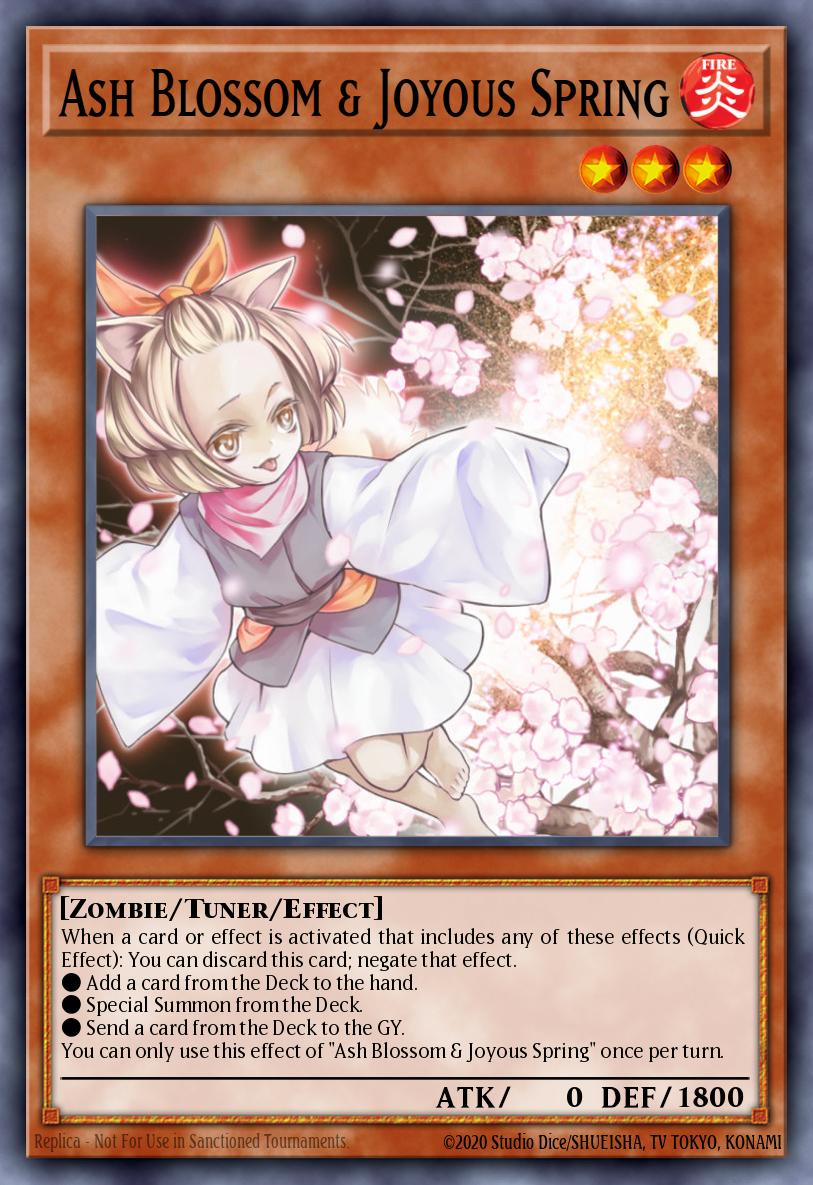
Ghost Ogre & Snow Rabbit. Ash Blossom & Joyous Spring. Droll & Lock Bird. Effect Veiler. Whether you love them or hate them, they're here to stay. Not even all that time you spent perfecting your going-first die rolls can save you now. Even if 100% of your opponents want to go second, most of them are going to be main-decking a suite of hand traps to counter your FTK -In which case, you're likely going to lose. Your god-of-all-FTK-decks can't really play counters such as Called by the Grave, since that'll lower the likelihood that you are able to pull off your FTK.
Countering Hand Traps
I've seen some brewers playing FTK decks which are able to summon things such as Outer Entity Azathot before they start their FTK. If you do so, you lock your opponent out of using Hand Traps, which can then secure the rest of your turn to win. Even so, summoning the Azathot itself can often be vulnerable to Hand Traps.
Another unique way to win against handtraps was seen in the pre-link days of Synchro Fusionist decks. This was a Synchro deck aimed at hand-looping the opponent for 5-7 cards. As such, the opponent would often use Maxx "C" once the Synchro deck started their combos. However, the deck could keep recurring Level Eater a bunch of times to deck out the opponent. Despite all of this, there was soon a clear way to beat even that part of the strategy: not using the Maxx "C" straight away. This leads to my next point against FTK decks: People learn how to beat them.
Metagame Knowledge
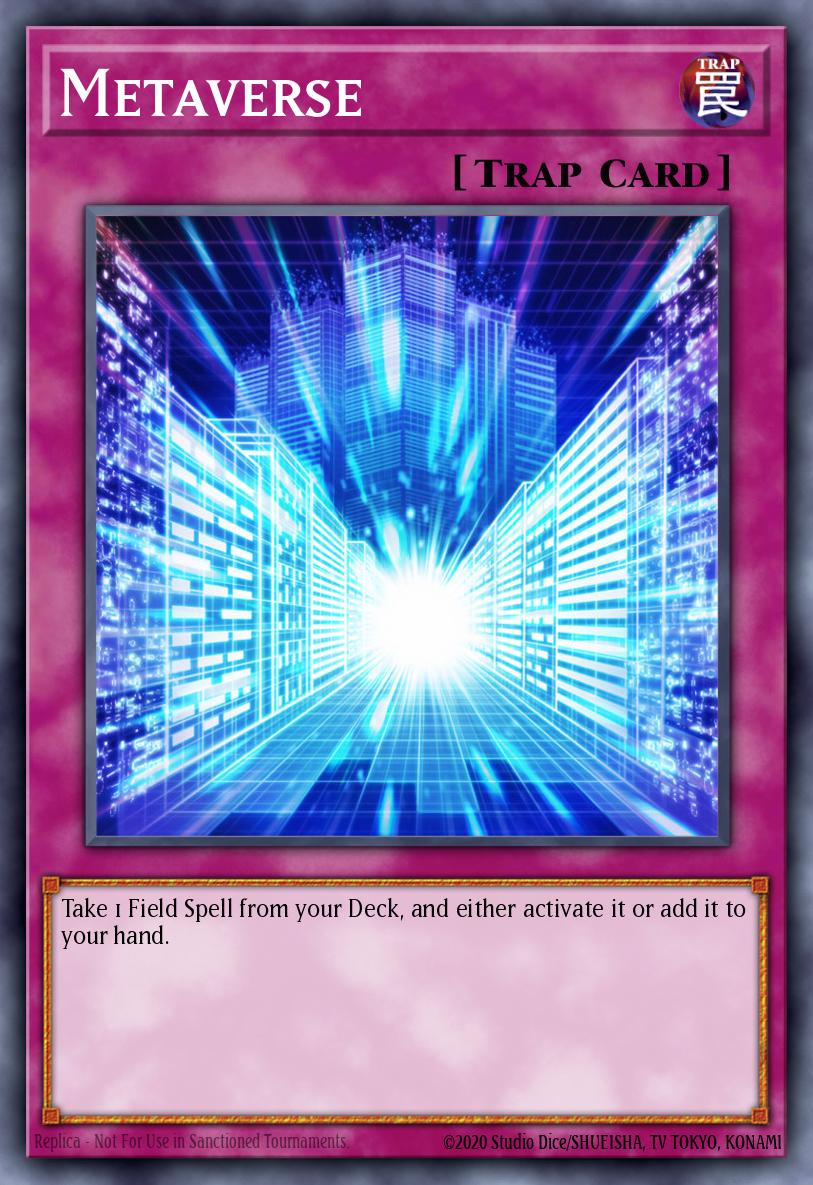 Unless you've made the FTK yourself, many players attending the event will know what the deck is. They likely also know how to beat it. If it's a particularly strong FTK deck, they possibly even are choosing to play decks which go first, as well as opting to main and side as many handtraps as possible.
Unless you've made the FTK yourself, many players attending the event will know what the deck is. They likely also know how to beat it. If it's a particularly strong FTK deck, they possibly even are choosing to play decks which go first, as well as opting to main and side as many handtraps as possible.All of this will only lower your win percentage. If the deck is popular, you may even face the FTK mirror match. This is a true battle of wits; A clash of desires to win the passionate heart of Lady Luck; A chance for your die-rolling prowess to really shine. Never before will you face an adversary as well-tempered and battle-damaged as this one. You've both had troubled childhoods. That's why you've both chosen to play non-interactive FTK decks at a children's card game tournament. Your battle-weathered palms are sweaty; bloodied by shuffling your fresh sleeves so much. You pick up the die and -- The win percentage here is still 50%.
Unless you're onto some tech that the rest of the competition isn't, you're better off playing a different deck. It's also pretty unlikely that your deck even has the room to play different techs, since you're all-in on the FTK plan. This segues quite nicely into the final section of this article: The best FTK decks aren't FTK decks.
How to Succeed with FTK decks
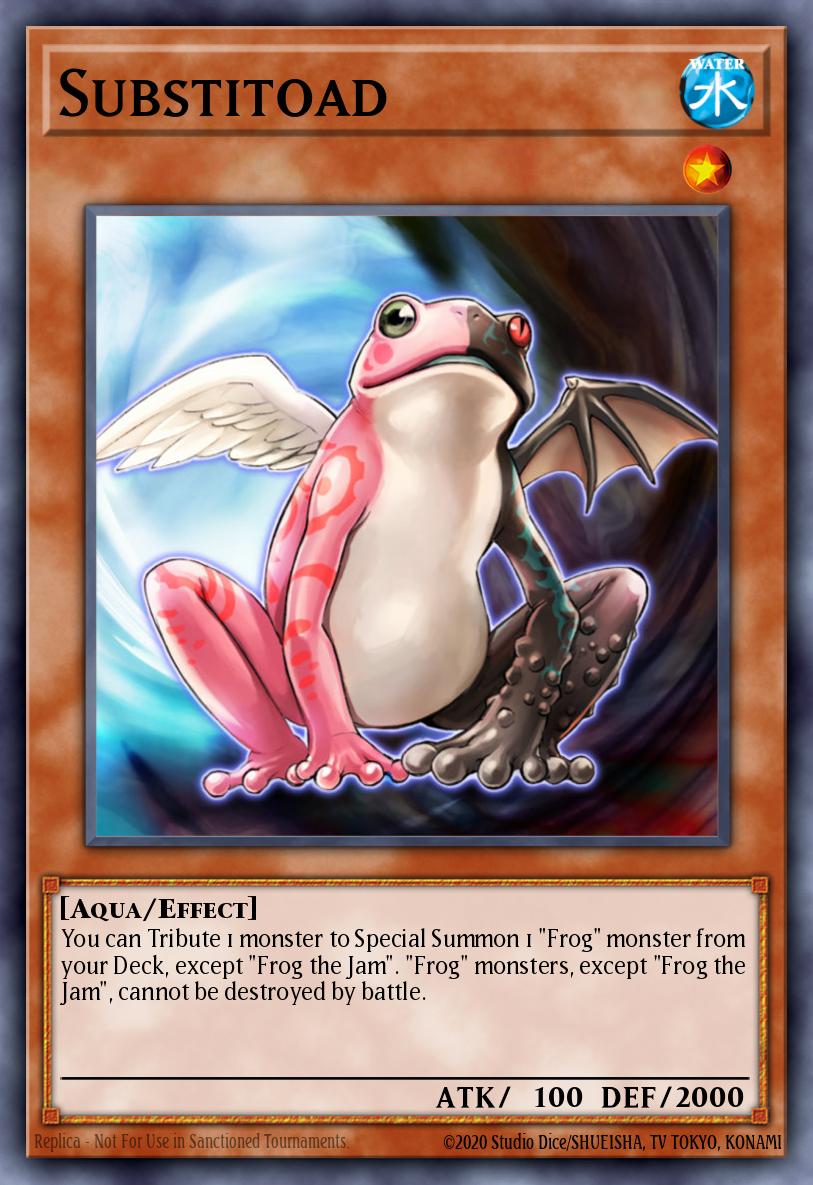
Think of the most successful FTK decks in all of Yugioh history. Frog FTK comes to mind, since it won the World Championship. The Wind-Up Hand-Loop wasn't really an FTK, but it did essentially win on the first turn, so that counts. In recent history, Pendulum FTK and Gem-Knight FTK have been successful, though Pendulum FTK was notably much stronger than the Gem-Knights.
The Frogs were mostly strong because of the lack of hand traps in the metagame. The only thing to stop them was Hanewata (This article has had a lot of jokes, but Hanewata was seriously played as a staple in Frog FTK format). The lack of hand traps stands for any similar instant-win deck prior, as well. Magical Scientist decks fall into this category as well. As such, they're not relevant to our current understanding of FTK decks. This leaves us with things such as Wind-Ups and Pendulums.
Successful FTK decks
Why did Wind-Ups and Pendulums rise to the top? Simply put, it's because the core strategy was not to FTK the opponent. If your opponent used Maxx "C" against your Wind-Up deck, you couldn't hand loop. But that's not an issue, since the deck had a whole extra gameplan set out. It was a rank-3, rank-4, and rank-5 toolbox deck capable of making things such as Wind-Up Zenmaines, an incredibly powerful card at the time.
Similarly, Pendulum Magicians had explosive plays outside of FTK capabilities. Heavymetalfoes Electrumite was a value engine, and prior to its release, the deck was still able to make high-rank Synchro and Xyz monsters. To re-iterate: The deck was capable of things outside of the FTK.
Even the Gem-Knight FTK deck had a back-up plan in the form of making True King of All Calamities, which could win a game when you didn't draw the FTK combo pieces. Even though these decks didn't have 100% instant-win potential, they still had a higher win rate than decks which do.
What to take away from this
The next time you design an instant-win combo deck, consider what your back-up strategy is. Try to find a good balance between your combo pieces and back-up plan, and study the meta. If there are a lot of going-first decks, you might want to play something else. If there are a lot of going-second decks, find ways to make the combo more resistant to hand traps. Finally, don't cut overall win consistency for instant win consistency. It doesn't matter if you win on the first turn every game, as long as you actually manage to win every game. Lastly, if you're at a casual locals - don't be that guy.
Until next time: Stay Groovy!




